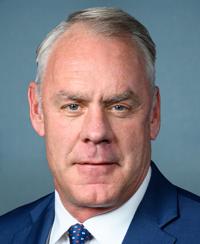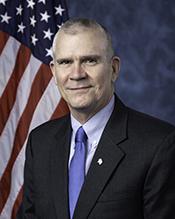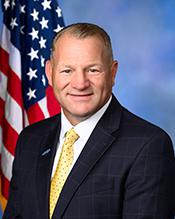0
Western Water Accelerated Revenue Repayment Act
11/15/2024, 12:20 AM
Summary of Bill HR 3675
The bill specifically targets projects that are part of the Bureau of Reclamation's water infrastructure program. These projects include dams, canals, and other water storage and delivery systems that are crucial for providing water to communities in the western states.
If passed, the Western Water Accelerated Revenue Repayment Act would allow for the repayment of these federal loans to be accelerated, meaning that the borrowers would be required to pay back the loans at a faster rate than originally planned. This would help to reduce the overall cost of the loans and free up funds for other water infrastructure projects in the region. Supporters of the bill argue that accelerating the repayment of these loans would help to ensure the long-term sustainability of water infrastructure in the western United States. They also believe that it would help to stimulate economic growth in the region by creating jobs and improving access to water for agriculture, industry, and residential use. Opponents of the bill have raised concerns about the potential financial burden that accelerated loan repayment could place on borrowers, particularly in light of the economic challenges facing many communities in the western states. They also argue that the bill could prioritize certain water projects over others, potentially leading to inequities in access to water resources. Overall, the Western Water Accelerated Revenue Repayment Act is a complex piece of legislation that seeks to address the challenges facing water infrastructure in the western United States. Its passage would have significant implications for water management and economic development in the region.
Congressional Summary of HR 3675
Western Water Accelerated Revenue Repayment Act
This bill permanently authorizes a provision under the Water Infrastructure Improvements for the Nation Act that (1) allows certain water users (e.g., agriculture and municipal water users) in western states to prepay what they owe under contracts with the Bureau of Reclamation for the storage and supply of water resources; and (2) requires a specified portion of the receipts generated from such prepayments be directed to the Reclamation Water Storage Account for the construction of water storage.
Read the Full Bill
Current Status of Bill HR 3675
Bipartisan Support of Bill HR 3675
Total Number of Sponsors
2Democrat Sponsors
0Republican Sponsors
2Unaffiliated Sponsors
0Total Number of Cosponsors
18Democrat Cosponsors
0Republican Cosponsors
18Unaffiliated Cosponsors
0Policy Area and Potential Impact of Bill HR 3675
Primary Policy Focus
Water Resources DevelopmentPotential Impact Areas
Alternate Title(s) of Bill HR 3675
Comments

Samuel Perkins
1 year ago
Can you believe this bill?! It's going to mess with my water supply and I am not happy about it at all. This is just another example of the government making decisions without thinking about how it will impact regular people like me. I hope this doesn't end up causing more problems than it solves. #frustrated #HR3675 #waterwoes

Chelsea Burgess
1 year ago
I don't like this bill. It will hurt us.

Cataleya Lassiter
1 year ago
I'm all for this bill, it's about time we address the water issues out West. Hopefully this will help with the drought situation. #HR3675 #WaterBill #USApolitics

Adeline Ritchie
1 year ago
I don't like this bill, it's gonna mess with our water out here in the West. I heard it's gonna make us pay back money faster or something, but I'm not sure how that's gonna work. It just doesn't seem fair to me. Who's gonna benefit from this anyway?

Aviana Rosenthal
1 year ago
I don't know much about this bill, but it sounds like a step in the right direction. Can't wait to see how it all plays out! #politics #USA

Legacy Small
1 year ago
Not sure what this bill is all about, but it sounds like it's gonna mess with my water supply. #NotCool #HRBill3675

Jedidiah Barry
1 year ago
I support this bill, it will help with water infrastructure in the West. #HR3675





